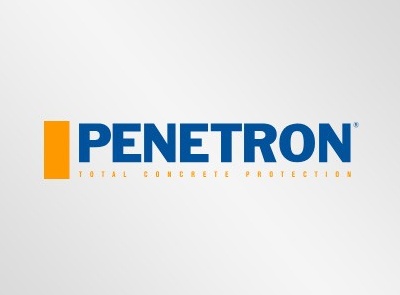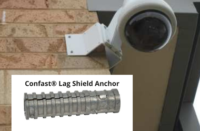 Completed in October 2021, the Brentwood Bound stage of the Deer Creek Flood Mitigation plan expanded the sewer network in Brentwood, Missouri. Penetron technology, specifically its antimicrobial concrete admixture was specified to permanently protect the concrete walls of the new wet well from microbially-induced corrosion (MIC).
Completed in October 2021, the Brentwood Bound stage of the Deer Creek Flood Mitigation plan expanded the sewer network in Brentwood, Missouri. Penetron technology, specifically its antimicrobial concrete admixture was specified to permanently protect the concrete walls of the new wet well from microbially-induced corrosion (MIC).
“Stormwater flooding of the Deer Creek area of Brentwood, Missouri has regularly inundated the area. This creates chronic public safety issues and caused extensive property damage,” explains Christopher Chen. Chen is the Director of The Penetron Group. “By improving the Deer Creek channel and floodplain to alleviate these flooding problems, the area’s properties will be protected and there will be opportunities for economic development along the Manchester Road corridor in Brentwood.”
Commissioned by the Metropolitan St. Louis Sewer District (MSD), the $6.7-million Brentwood Bound project is the latest stage in the MSD’s “Project Clear” initiative to eliminate sewer overflows during heavy storms and prevent sewage from flowing into Deer Creek and the nearby Mississippi River. Construction work included a stormwater retention facility and wet well, installation of new storm sewers and sanitary sewers, stabilization of the Deer Creek banks, and landscaping.
“Similar to the MSD’s Deer Creek Tunnel construction, also a Penetron project completed earlier this year, the Brentwood Bound stage enhances flood control of the Deer Creek, adds improved and expanded infrastructure along Manchester Road, and establishes the Deer Creek Greenway Connector, a new park that provides safe public access to the natural floodplain of Deer Creek,” describes Christopher Chen.
Preventing Growth of Acid Producing Microbes
Because the concrete structures of the wet well in Brentwood would be exposed to hydrogen sulfide gas, L. Keeley Construction, the project contractor, requested a solution to prevent microbially-induced corrosion (MIC).
MIC is a process where micro-organisms found in sewer systems. These include thiobacillus bacteria, metabolize hydrogen sulfide gas (H2S) commonly found in sewage systems into biogenic sulfuric acid (H2SO4). The biogenic sulfuric acid rapidly deteriorates concrete. The industry refers to this deterioration process as microbially-induced corrosion (MIC).
A More Elegant MIC Solution
“Previous methods of protecting concrete against MIC, such as PVC liners or epoxy coatings, are very expensive. They are also labor-intensive, and need regular maintenance – or replacement,” adds Christopher Chen. “By adding Penetron’s antimicrobial admixture, an integral solution, to the concrete mix during batching, MIC is prevented.”
The engineering consultants for the Brentwood Bound project specified Penetron’s antimicrobial admixture for the concrete mix of the wet well’s base slab and walls. Breckenridge Material Company, the ready-mix concrete supplier, delivered the Penetron-treated concrete mix.
Antimicrobial Mechanism Prevents Corrosion
Penetron’s antimicrobial admixture uses an electro-physical mechanism to destroy the cell walls of micro-organisms, in particular, the thiobacillus bacteria, on contact. Because the admixture becomes part of the concrete matrix, it is a permanent solution. In addition, it is leach resistant and its effectiveness will not lessen by repeated contact with bacteria.
“Penetron’s antimicrobial admixture was specified thanks to its ease of use and attractive pricing,” concludes Christopher Chen.
About The Pentron Group
The Penetron Group is a leading manufacturer of specialty construction products for concrete waterproofing, concrete repairs and floor preparation systems. The Group operates through a global network. It offers support to both the design and construction community through its regional offices, representatives and distribution channels.














